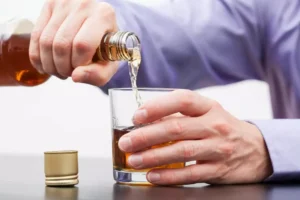
They studied beer, wine, liquor and “total alcohol” (sum of the three alcoholic beverages consumed by an individual). What’s not so well known is the effect of alcohol consumption on biological aging, specifically binge drinking, long-term drinking and type of drinks — such as beer, wine or liquor. A U.S. Veterans cohort study of more than 4000 women, age 55 years and older, who did not express symptoms of dementia at initial study, were followed for an average of four years to determine whether those with AUD (half of the sample) had an increased risk of developing dementia. Follow-up examination revealed that dementia (defined by ICD-9 codes) developed in 3.7% of women with an AUD but only 1.1% of women without AUD. Numerous comorbidities and cofactors (e.g., smoking, depression) were either excluded or accounted for statistically.
Epigenetic age deacceleration in youth at familial risk for schizophrenia and bipolar disorder
Additional focused analyses found connectivity between the bed nucleus of the stria terminalis (BNST) and the ventral medial prefrontal cortex (vmPFC) that was counterintuitively stronger in women than men with AUD in early abstinence (Flook et al., 2021). Differential disruption of hippocampal connectivity serving episodic memory showed a graded effect of FA deficit from AUD to AUD-related WKS (Segobin et al., 2019). In search of a causal biomarker for AUD-related brain aging, DNA methylation age estimates were made in 8051 individuals with brain imaging data. These estimates yielded only modest evidence for alcohol as causative of accelerated aging despite the observation that accelerated brain aging derived from the Cole et al. model (Cole et al., 2017) did correlate with greater alcohol consumption (Bøstrand et al., 2022). The Oxford researchers studied genetic markers in the samples and asked the participants how much they drank to determine their alcohol consumption before comparing the lengths of their telomeres.
Volume of hippocampal subfields in patients with alcohol dependence
The new study did find that drinking mostly wine and drinking only with meals moderated the risk, particularly of death from cancer. “We did not find evidence of a beneficial association between low drinking and [overall] mortality,” lead study author Dr. Rosario Ortolá, an assistant professor of preventive medicine and public health at Universidad Autónoma de Madrid, told the New York Times. Your liver also processes a whole host of medicines, which can interact with alcohol. This could mean you get more side effects, For example, painkillers, some antihistamines and some antidepressant medicines can make you feel drowsy, and this is often made worse by alcohol. For some, dairy may increase inflammation in the body, which leads to oxidative stress. This means that when alcohol is consumed, more of it ends up in the bloodstream, which amplifies its effects on the body.

The association between alcohol consumption and sleep disorders among older people in the general population
All patients were asked about alcohol use and were asked to categorize their use as none, occasional, weekly, or daily. Intracranial hemorrhage (ICH), a head trauma that takes place in various areas of the brain, was determined from the patient’s head CT scan as read by the attending hospital radiologist. Nationally, falls remain the leading cause of both fatal and non-fatal injuries in older adults and are the leading cause of traumatic brain injury. In 2021, falls led to the deaths does alcohol accelerate aging of 36,500 older adults in the United States and 3,805 older Floridians. While some studies have hypothesized that alcohol use contributed to these outcomes, there are few studies which have examined this issue. “The detrimental effects on cancer [deaths] are observed from the first drop,” Dr Rosario Ortolá, the study’s lead author and an assistant professor in the department of preventive medicine and public health at the Autonomous University of Madrid, told Euronews Health.

“Both the birth defects that come with FAS — like abnormal facial features, low birth weight and/or height, and attention and hyperactivity issues — and the stress from living with them create unique challenges. So do any environmental issues that these children may grow up with, including adoption and the foster system,” he said. “Our findings suggest that alcohol use assessment and mitigation strategies may be useful additions to fall prevention strategies,” said Shih. When it comes to oils and wrinkle prevention, opt for monounsaturated fats to help keep the skin hydrated.

Keeping your alcohol intake moderate as you get older is a really sensible start to living a longer, healthier life with no nasty surprises. Alcohol may not only make you more likely to get sick as you age, it also can make common medical problems worse. Studies show that heavy drinkers can have a harder time with things like osteoporosis, diabetes, high blood pressure, stroke, ulcers, cancer, memory loss, and certain mood disorders. Extrinsic aging is when your skin ages faster than it should because of your environment and how you live. 2The inability to normally metabolize alcohol can result in unpleasant symptoms in response to alcohol consumption, including visible flushing of the face, nausea, and vomiting.
- CRH then is transported through these blood vessels to the pituitary gland (i.e., the anterior pituitary), where it stimulates specialized cells (i.e., corticotrope cells) to secrete ACTH into the bloodstream.
- When she’s not in the kitchen, Tiffany enjoys yoga, hiking, traveling, organic gardening, and hanging out with her corgi, Cocoa.
- A series of studies have shown that dexamethasone exerts its primary negative feedback effects on the HPA axis by directly suppressing ACTH release from the pituitary (de Kloet et al. 1998).
- No causal link was established between alcohol consumption and telomere shortening, but the study makes strong observational suggestions.
- Regardless of the source of the stress, the body responds by activating well-defined physiological systems that specialize in helping a person cope with the stress.
- Meanwhile, the World Health Organization has established that alcohol is a known carcinogen and alcohol consumption increases the risk of several cancers, including breast, liver, head and neck, and esophageal and colorectal cancers.
Older adults who regularly drink alcohol are at higher risk of dying from cancer, study finds
This age-related discrepancy is apparent even in alcoholics in their thirties (Noonberg et al. 1985). Although these observations support the notion that alcoholics experience accelerated brain aging, the studies conducted to date have not ruled out the possibility that the alcohol-related cognitive deficits reflect an initial cognitive impairment that leads to an increased risk of alcoholism. This narrative review focuses on age–alcohol interactions detected in vivo with structural neuroimaging and is timely given current drinking patterns of older adults.
- If you drink it in moderation (about one glass a day), some studies show that it might be good for your heart.
- In contrast, the ability of the HPA axis to adapt to repeated alcohol exposure differed greatly between the aged and the younger rats.
- In search of a causal biomarker for AUD-related brain aging, DNA methylation age estimates were made in 8051 individuals with brain imaging data.
- According to Golding, healthy lifestyle choices also compound generationally, making efforts to reverse aging — through things like diet and exercise — beneficial for generations to come.
- Data consisted of 21 liver samples with alcoholic cirrhosis and 34 normal liver samples.

In that study, both groups of animals displayed equivalent increases in corticosterone levels in response to alcohol on the first day of treatment, suggesting that in rats, no age-related difference exists in the initial response of the HPA axis to alcohol. In contrast, the ability of the HPA axis to adapt to repeated alcohol exposure differed greatly between the aged and the younger rats. Whereas young rats developed extensive tolerance in their corticosterone response to alcohol (i.e., showed smaller alcohol-induced increases in corticosterone levels) after 7 days of alcohol exposure, aged rats exhibited substantially less tolerance development. As a result, on days 7 and 14, the corticosterone levels in response to alcohol were significantly greater in the aged rats than in the younger ones.
- Similarly, cardiovascular health might be preserved by chronic intake of low amounts of alcohol, whereas high intake damages the cardiovascular system.
- Evidence for the latter relationship between alcohol and the HPA axis derives from animal studies in which researchers experimentally manipulated corticosterone levels.
- In the following years, it appears that people in this cohort, particularly women, maintained a higher total amount and frequency of alcohol consumption than people in cohorts just before or after (Kerr, Greenfield, Bond, Ye, & Rehm, 2009; Kuerbis, Sacco, Blazer, & Moore, 2014).
- Only a few longitudinal studies have been conducted in adults with AUD to track change with abstinence or relapse to drinking.
Non-smokers with AUD exhibited evidence of microstructural improvement in total and temporal white matter tracts, while AUD smokers showed gains in frontal and temporal white matter volume (Gazdzinski et al., 2010). Another study examined potential changes in white matter microstructural integrity by following a group of 15 AUD individuals from 2 weeks of abstinence to 1 year later and a group of 15 control participants scanned at the same intervals. Although the control FA and diffusivity measures were stable over the year, the whole AUD group showed a gain in FA and a drop in radial diffusivity, differences not detected in the relapsed subgroup (Alhassoon et al., 2012).




